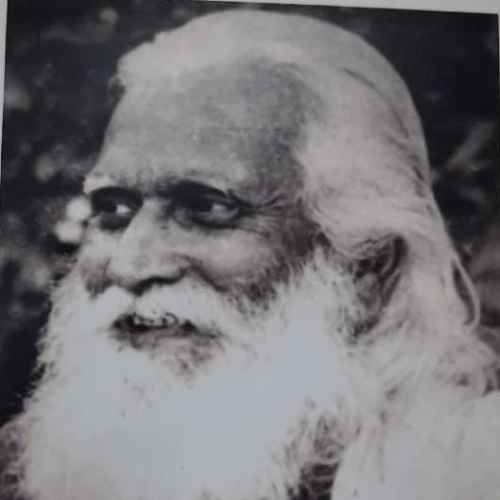Early Life
Ramnarayan Singh was born in the year 1885 in Hazaribagh’s Tetariya village, located in present day Jharkhand. His early school education was done at the village schools of Tetaria and Chhotki Jhori. Subsequently, he went to the Upper Primary School at Hunterganj, the Middle Vernacular School in Jhori and finally the Zilla School in Hazaribagh. After finishing his Intermediate studies from St, Xavier’s college Calcutta, Singh pursued a B.A. degree from the city’s Ripon College. After undergraduation, he took up a law degree at the Patna Law College.
Role in India’s Independence Movement
Singh was a dedicated Congress party political worker much of his early life. He served as the Secretary and President of the Chatra Sub-Divisional Congress Committee until 1924. Briefly, in 1924, he was elected Vice-Chairman of the Hazaribagh District Board. Between 1925-46 he was the President of the Hazaribagh District Congress Committee. Singh also remained a long-term member of the Bihar Pradesh Congress Committee and the All India Congress Committee. In 1927 he was elected to the Central Legislative Assembly and continued to be a member until 1946.
Singh is identified as one of the prominent freedom fighters from the Chotanagpur region. His participation in the Freedom Movement gave him the title, ‘Chotanagpur Kesri’. He is also often referred to as Babu Ramnarayan Singh. Between 1921 and 1944, Singh went to jail multiple times for his anti-British activities, serving up to a two-year long imprisonment in 1942.
Singh was a devoted Gandhian for most of his life. He was deeply involved in the Bangam Manjhi led reform movements among the Santals of Hazaribagh. Singh, alongside a few other Congress workers like Krishna Ballabh Sahay, was instrumental in steering the movement along the Gandhian line. The British then arrested him for his ‘anti-government activities’ and put him behind bars for a year. During his time as the President of the Hazaribagh Congress Committee, Singh was the torchbearer for Khadi and Charkha Spinning. He put in huge efforts to spread Khadi work in Hazaribagh by introducing them in schools, holding Charkha demonstrations and organising Khadi exhibitions.
Contribution to Constitution Making
Singh was elected to the Constituent Assembly from the Bihar Province on a Congress Party ticket. He was quite vocal in the Assembly and often brought the Gandhian perspective in the Assembly discussions. He was distressed by the absence of Panchayats in the Constitution, expressed discontent about party politics in India and intervened in the debates on the fifth schedule and the role of civil servants in an independent India.
Later Contributions
After India’s independence, Singh moved away from the Congress. He contested the 1952 elections as an independent candidate and won from the Hazaribagh-West constituency in Bihar.
Though the specific reasons for his exit from Congress are unclear, one can glean that it might have to do with his displeasure in the way the Party was becoming subservient to the Central Government. Sometime after his departure from the Party and subsequent electoral victory, he wrote a long letter addressed to U.N Dhebar, the then Congress President, criticising the way Jawaharlal Nehru had moulded Congress into a tool to garner support for the existing government.
Singh passed away in 1964.
- He was fiercely opposed to the creation of separate provisions for the administration and control of Scheduled Areas and Scheduled Tribes. He believed that by introducing the fifth schedule, the Constituent Assembly was advocating discriminatory administration that the leaders of the Freedom Movement had rejected during British rule.
- He felt that by placing too many restrictions on amendments to the Constitution, the Assembly was being unjust to future generations. He insisted that in a democracy, it must be possible to make any decision through a simple majority.
- When the Assembly discussed the future privileges of members of the Civil Service, he was uncertain why Civil Servants have to be given such guarantees after independence. He argued that they had previously been loyal to the British Government and had not shown any change in their behaviour to be given such safeguards for their future.
- He was worried that the Constitution was concentrating all power with the Centre and thereby, taking away the power from the villages.
Members Bioprofile (Lok Sabha)

